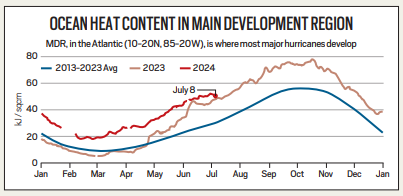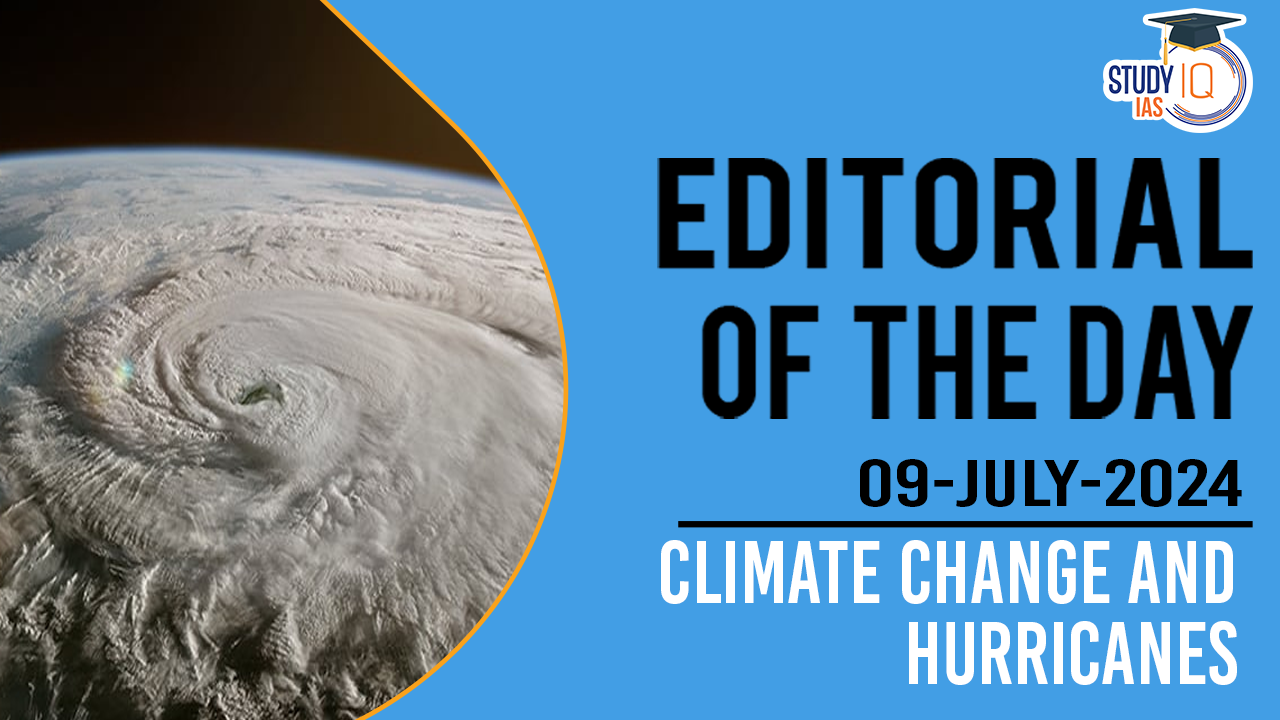Table of Contents
Context: Hurricane Beryl made history as the earliest Category 5 hurricane ever recorded in the Atlantic Ocean.
| Other Major Hurricanes in the Atlantic Ocean |
|
Hurricane Formation
- Hurricanes form over warm ocean waters near the equator.
- Warm, moist air rises creating low pressure.
- Surrounding air rushes in, rises, cools, and condenses into clouds and thunderstorms.
- This system gains energy from the warm water, forming a hurricane if sustained wind speeds reach 119 kmph or higher.
- The Saffir-Simpson Hurricane Wind Scale categorises hurricanes based on wind speed (Category 1: 119-153 kmph, Category 5: 252+ kmph).
Beryl’s Rapid Intensification
- Beryl formed as a tropical depression on June 28th and became a hurricane within 24 hours.
- It rapidly intensified into a Category 4 hurricane, the first ever recorded in June.
- By July 1st, Beryl reached Category 4 with winds exceeding 241 kmph, making landfall on Grenada.
- On July 2nd, Beryl became the strongest July Atlantic hurricane ever recorded, reaching Category 5 with winds of 265.5 kmph.

Climate Change and Beryl’s Early Strength
- The Atlantic hurricane season typically sees major hurricanes emerge in September due to cooler ocean temperatures earlier in the season.
- Unusually warm ocean temperatures, both at the surface and deeper down, are considered a primary factor in Beryl’s early development and strength.
- Rising ocean heat content (OHC) provides more energy for storms to develop and intensify.
- While directly attributing a single hurricane to climate change is difficult, scientists believe warmer oceans contribute to rapid intensification events.
The Future of Hurricanes
- The connection between climate change and hurricanes is a subject of ongoing scientific debate.
- However, there is evidence that climate change may increase the frequency and intensity of rapid intensification events.
- Warmer oceans could lead to the formation of even more powerful hurricanes in the future.


 Important Reports and Indices in News (2...
Important Reports and Indices in News (2...
 Supreme Court to Examine Scope of 'Right...
Supreme Court to Examine Scope of 'Right...
 Why Iran Matters More Than Venezuela: En...
Why Iran Matters More Than Venezuela: En...

























